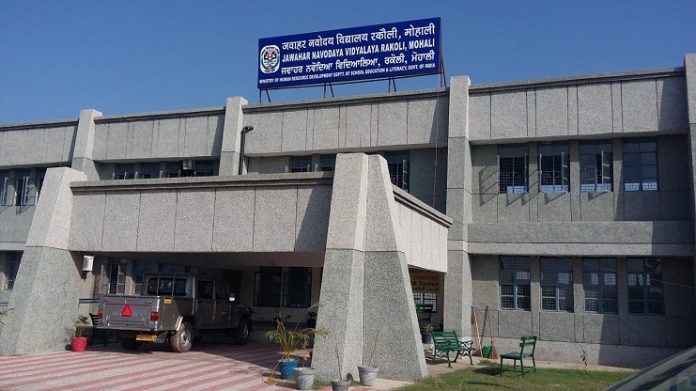Hello Readers, in this article we bring you complete details about Jawahar Navodaya Vidyalaya (JNV). From History of JNV to Organizational structure. Complete List of schools under JNV, Admission Procedure to Jawahar Navodaya Vidyalayas. Contact details of regional offices address with phone numbers.
हेलो रीडर्स, इस लेख में हम आपके लिए जवाहर नवोदय विद्यालय (जेएनवी) के बारे में पूरी जानकारी लेकर आए हैं। जेएनवी के इतिहास से लेकर संगठनात्मक संरचना तक। जेएनवी के तहत स्कूलों की पूरी सूची, जवाहर नवोदय विद्यालय में प्रवेश प्रक्रिया। फोन नंबरों के साथ क्षेत्रीय कार्यालयों के पते का संपर्क विवरण।
Topic Will Cover:
1. History of JNV
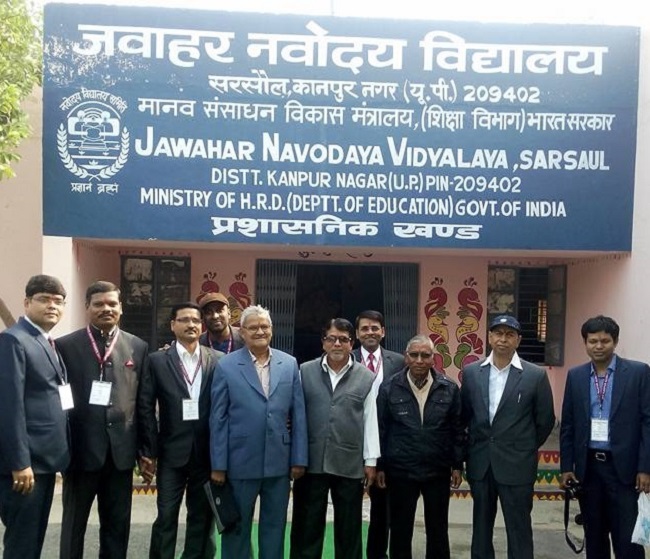
Former Indian Prime Minister Rajiv Gandhi became pregnant at Jawahar Navodaya Vidyalaya. The idea of opening JNV in every district of India was born as part of the 1986 National Policy on Education with the aim of excelling with social justice. Subsequently, it was registered as a Navodaya Vidyalaya Samiti (NVS) Society in 1860 under the Societies Registration Act.
According to government policy, a JNV has to be set up in every district of the country. To begin with, two Jawahar Navodaya Vidyalayas were established between 1985-86 at Jhajjar (Haryana) and Amravati (Maharashtra). As of the 2015-16 academic session, JNV has been approved for 576 districts. In addition, ten JNVs have been sanctioned in districts with large ST population, ten districts have scheduled caste populations and two separate JNVs in Manipur, with a total strength of 598 JNVs. Of these, 591 were JNVs. Are functional. In November 2016, the Cabinet Committee on Economic Affairs (CCEA) approved the opening of JNV in each of the 62 open districts. This brings the total number of JNVs once operated to 660.
Jawahar Navodaya Vidyalaya (JNV) is a system of Kendriya Vidyalaya, mainly for gifted students from rural India. Navodaya Vidyalaya Samiti in New Delhi, Department of School Education and Literacy, Ministry of Education (MoE) (formerly Ministry of Human Resource Development (MHRD) (1985-2020), is an autonomous body under the Government of India. JNV is a full boarding and co-educational school affiliated to the Central Board of Secondary Education (CBSE) in New Delhi, grades VI to XII. JNV is unique in finding talented children in rural India and providing education on par with the best residential school system regardless of the socio-economic status of their families.
The budget for education, boarding and activities at JNV is provided by the Ministry of Education, Government of India and is free for students for 7 years.
JNV is found all over India except Tamil Nadu. As of the 2016–17 academic year, there were approximately 661 students across India. As of 30 September 2019, there are a total of 636 JNVs operating in the country, enrolling approximately 2,65,574 students, of whom 2,06,728 (78%) are from rural areas. In 2019, JNV Top Rank CBSE schools had a pass percentage of 98.57% and 96.62% in 106.12 classes.
2. Organizational structure
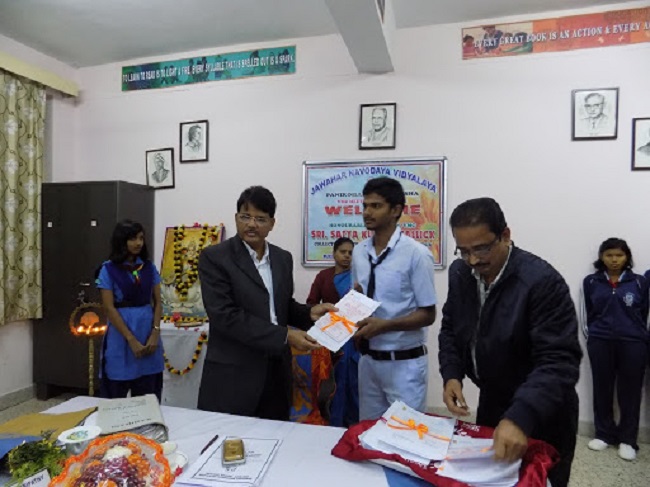
Navodaya Vidyalayas are run by the Ministry of Education (MoE) (formerly the Ministry of Human Resource Development (MHRD)) (1985-2020), the Department of School Education and Literacy, and the Navodaya Vidyalaya Samiti (NVS), an autonomous body under the government. India. The committee is headed by the Minister of Education.
The committee works through an executive committee headed by the Minister of Education. The Executive Committee is responsible for the management of all matters, including the allocation of funds to the Committee and has the power to exercise all the rights of the Committee. It is supported by two sub-committees, the Finance Committee and the Academic Advisory Committee.
The Executive Head Committee of the Administrative Pyramid is the commissioner who implements the policies determined by the Executive Committee. They are assisted by Joint Commissioners, Deputy Commissioners and Assistant Commissioners at the headquarters level.
The committee has set up eight regional offices for the administration and supervision of Navodaya Vidyalayas under its purview. These offices are headed by the Deputy Commissioner and the Assistant Commissioner.
For each JNV, there will be a school advisory committee to assist educators, infrastructure and other general activities and a school management committee for budget preparation, selection of temporary teachers and proper functioning of the school. The school district committees usually have ex-officio chairmen as well as local educators, public representatives and district officials as members. Some schools also have a school coordinating committee to oversee the performance of education.
3. List of Jawahar Navodaya Vidyalayas
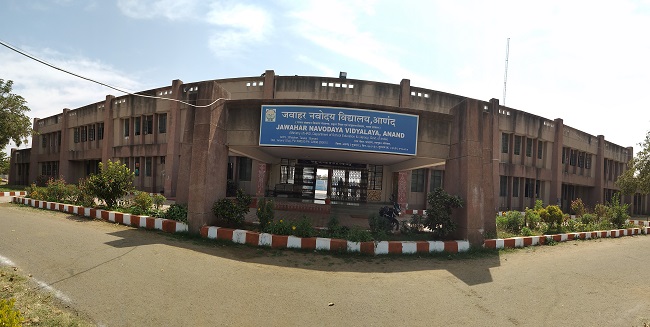
- Bhopal (113)
- Chhattisgarh (28)
- Madhya Pradesh (54)
- Odisha (31)
- Chandigarh (59)
- Chandigarh(1)
- Himachal Pradesh (12)
- J&K (23)
- Punjab (23)
- Hyderabad (77)
- A & N Islands (3)
- Andhra Pradesh(15)
- Karnataka (31)
- Kerala (14)
- Lakshadweep (1)
- Puducherry (4)
- Telangana (9)
- Jaipur (65)
- Delhi (9)
- Haryana (21)
- Rajasthan (35)
- Lucknow (89)
- Uttarakhand (13)
- Uttar Pradesh (76)
- Patna (85)
- Bihar (39)
- Jharkhand (26)
- West Bengal (20)
- Pune (73)
- Dadra and Nagar Haveli and Daman and Diu (1+2)
- Goa (2)
- Gujarat (34)
- Maharashtra (34)
- Shillong (100)
- Arunachal Pradesh (18)
- Assam (28)
- Manipur (11)
- Meghalaya (12)
- Mizoram (8)
- Nagaland (11)
- Sikkim (4)
- Tripura (8)
A total of 661 functional residential schools have been approved in 638 districts of India with some special case institutions. These are administered by eight regional offices (see table below) with jurisdiction over the various States and Union Territories.
4. Admission Procedure to Jawahar Navodaya Vidyalayas
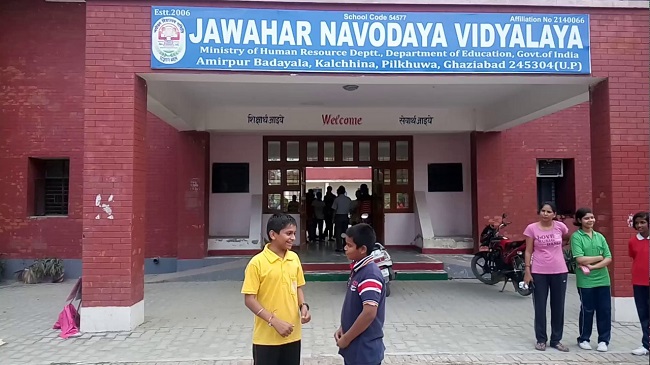
Admission to Class VI of JNV requires qualification in the Entrance Test (JNVST) designed, developed and conducted by CBSE. JNVST conducts sixth grade nationwide to select the 80 most talented students for each JNV. It is conducted in three phases per year depending on the session structure in a particular state or union territory. Candidates can apply for the exam only during 5th class. In the entrance examination, a total of 1,878.15 thousand students appeared in JNVST 2015 and 41.48 thousand students were selected (i.e. approximately 2% pass percentage). Exams include mental ability skills, math and regional language. Huh. Schools make reservations under the NVS policy, which includes reservations for STs and SCs (but not OBCs), [16] with at least 5% students from rural areas and a maximum of 25% female students from urban areas. 33% for fixed and 3% for disabled candidates.
For better utilization of adjoining and CBSE-developed seats, JNVST conducts ninth class admission and lateral admission to Class X on merit in the tenth class.
5. Nomination Process
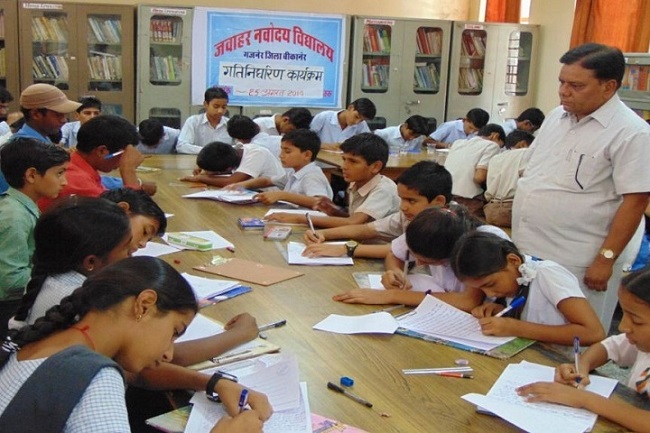
Admission to Jawahar Navodaya Vidyalaya is based on a selection test designed and conducted by CBSE. This test is called Jawahar Navodaya Vidyalaya Selection Test (JNVST). It is nonverbal, class-neutral in nature and is designed to allow talented children from rural areas to compete without harm. Special care will be taken to ensure that children in remote areas get free admission cards without any hassle. Adequate publicity by television, All India Radio, local newspapers, pamphlets, school websites and teachers of Navodaya Vidyalaya principals and local schools in the district.
6. Eligibility conditions and test structure

Only candidates from the district where Jawahar Navodaya Vidyalaya is open are eligible for admission. However, the district in which the JNV is open and divided at a later date to qualify for JNV entry will be considered the old boundaries of the district. This applies to cases where new schools have not yet opened in the newly divided district.
Candidates appearing for Government / Government Assisted Selection Examination for admission in ‘B’ Certificate Competition Course of the same district / other, other recognized school or National Institute of Open School Education.
A school is recognized if it is declared by the government or other body authorized on behalf of the government. NIOS accreditation is required in schools with a ‘B’ certified under the National Institute of Open Schooling. The candidate must successfully complete the class-hearing. Actual admission to the sixth class is subject to these conditions.
Applicants seeking admission must be between 9 and 13 years old. This applies to candidates from all walks of life, including Scheduled Castes (SCs) and Scheduled Tribes (STs).
Candidates seeking admission from Rural Quota should have passed Class-3, IV, V from Government. Aided/accredited schools spend a full academic session each year in a rural school.
Candidate studying in an urban area school will be considered as an urban candidate for one day session in any class-3, IV or V. urban areas, as per 2011 census or by further government notification. All other areas are considered rural areas.
Candidates who have not been promoted and have not entered Class-V by September 30 are not eligible to apply.
In any case, the candidate is eligible to appear for the JNV selection test for the second time. Reservations for rural, SC / ST, disabled girls and children
At least 75% of the seats in the district will be filled by selected candidates from rural areas and the remaining seats will be filled from urban areas in the district.
SC and ST candidates are required to make seat reservations in proportion to their population in the district but not below the national average.
1/3 seats are allotted to girl students.
27% reservation will be given to OBC students above SC, ST. OBC student reservations are enforced from time to time according to the central list.
OBC candidates included in the Central List do not apply as regular candidates.
There is a provision for allocating 3% of seats to children with disabilities as orthopedics (i.e. orthopedically disabled, hearing impaired and blind).
7. JNV Test structure
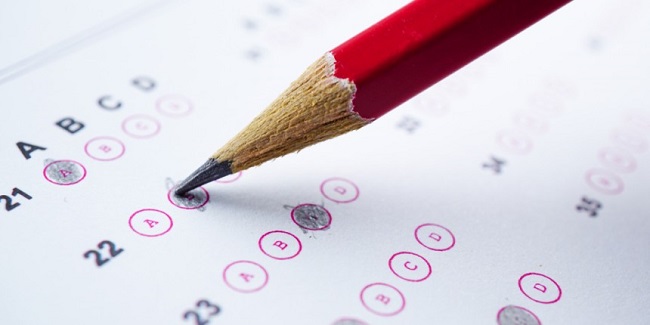
The test medium (JNVST) can be any of the notified languages.
To make better use of the basic facilities and staff facilities available at Jawahar Navodaya Vidyalayas, the vacant seats in the ninth class will be filled through the lateral entrance examination. In the year 2018-19, lateral entrance test for Class-1 was conducted in 544 Jawahar Navodaya Vidyalayas.
8. Eligibility Conditions for JNV
To appear for the selection test, the candidate must meet the following eligibility criteria:
Only eighth-grade candidates in government. Accredited schools in the district where JNV operates may gain admission in the ninth grade.
A candidate seeking admission must be between the age group 13-16 years on 1st May of the year of admission for which the Selection Test is conducted. This is applicable to all categories of candidates including those who belong to the Scheduled Castes and Scheduled Tribes.
The medium of Language for the Examination is English/Hindi.
Composition of Test for Class-IX:
Admission Test consists of questions of Class-VIII standard in the following subjects.
| Sr. No. | Subject | Marks |
| 1. | English | 15 |
| 2. | Hindi | 15 |
| 3. | Maths | 35 |
| 4. | Science | 35 |
| Total Marks | 100 |
Centre for JNVST Class-IX:
The test is conducted in objective/descriptive of type 3 hours duration without any break.
The Centre for the JNVST Class-IX Examination is Jawahar Navodaya Vidyalaya of the respective district.
Reservation:
The existing vacant seats in the SC/ST category, as notified, are reserved for the SC/ST students.
LATERAL ENTRY FOR CLASS-XI:
Issuance of notification for admission in class X-XI Vacant seats in each JNV are reported in the local newspapers each year by the JNV for that district.
Admission to the tenth grade is completed by July 15 of each year.
Eligibility for admission in the twelfth-grade Students seeking admission in the tenth grade must be within the age limit of 14-18 years in the first July of the year of admission.
Candidate must have passed Class X from an accredited school (affiliated to CBSE or other State Board of Education) in the district where JNV is located during the academic session in the year of admission.
The merit list will be prepared on the basis of the marks obtained by the applicant in the Class-X Board Examination and admission will be given according to the eligibility of the candidate and the seats available in the relevant JNVs. Candidates should have proper qualifications in English and Hindi.
Admission Notifications:
https://navodaya.gov.in/nvs/en/Admission-JNVST/Admission-Notifications/
Recruitment Rules:
https://navodaya.gov.in/nvs/en/Recruitment/Recruitment-Rules/
Navodaya Transfer Policy:
https://navodaya.gov.in/nvs/en/Transfer/Transfer-Policy/
Navodaya Contat Details:
https://navodaya.gov.in/nvs/en/Contact-Us/NVS-Hqrs/
Contact details:
Navodaya Vidyalaya Samiti, B-15, Institutional Area, Sector 62, Noida, Uttar Pradesh 201307
Fax: 0120 – 2405922
Call us: 0120 – 2405968, 69, 70, 71, 72, 73
9. Contact details of our Officers
| 1. Shri Vinayak Garg, IRSEE Commissioner 120-2975755, Fax-0120-2405182 commissioner.nvs@gov.in |
| 2. Shri Sanjeev Kumar Agrawal, I.E.S. General Manager [ Construction ] 0120-2975758 gm.nvs@gov.in |
| 3. Shri Sanjeev Kumar Agrawal, I.E.S. General Manager [ Admin ] 0120-2975758 gm.nvs@gov.in |
| 4. Shri G. Arumugam Joint Commissioner [ Admin ] 0120-2975751 |
| 5. Shri G. Arumugam Joint Commissioner [ Personnel ] 0120-2975751 jcpers.nvs@gov.in |
| 6. Shri Gyanendra Kumar Joint Commissioner [ Acedmince ] 0120-2975761 jcacad.nvs@gov.in |
| 7. Shri Gyanendra Kumar Chief Vigilance Officer 0120-2975761 cov.nvs@gov.in |
| 8. Shri N. K. Pahwa Deputy Commissioner [ Admin ] 0120-2975743 nk.pahwa@navodaya.nic.in |
| 9. Shri G. Chandramouli Deputy Commissioner [ Academic] 0120-2975764 dcacad.nvs@gov.in |
| 10. Shri G. Chandramouli Deputy Commissioner [ Training] 0120-2975764 dctrg.nvs@gov.in |
| 11. Shri G. Chandramouli Deputy Commissioner (NNLI) 0120-2975764 |
| 12. Shri R L Mali Deputy Commissioner(Finance) 0120-2975748 |
| 13. Shri R L Mali Deputy Commissioner(JNVST) 0120-2975748 dcexam.nvs@navodaya.nic.in |
| 14. Shri Vikram Joshi Deputy Commissioner(Personal) 0120-2975544 dcpers.nvs@gov.in |
| 15. Shri Vikram Joshi Deputy Commissioner (F & S) 0120-2975544 |
| 16. Shri Raghuvendra Kumar Assistant Commissioner [ Admin ] 0120-2975749 acadmin.nvs@gov.in |
| 17. Shri K Maheshwari Assistant Commissioner [ Finance ] 0120-2975763 maheshwari.k@navodaya.nic.in |
| 18. Shri T Sobhan Babu Assistant Commissioner [ Academic -1 ] 0120-2975750 ac1acad.nvs@gov.in |
| 19. Smt Kirti Panwar Assistant Commissioner [ Academic-2 ] 0120-2975757 kirti.panwar@navodaya.nic.in |
| 20. Shri Aditya Prakash Singh Assistant Commissioner [ Academic-3] 0120-2975741 actrg.nvs@gov.in |
| 21. Shri Benny Joseph Assistant Commissioner [ Academic-4] |
| 22. Shri Ashok Kumar Assistant Commissioner [ Estt- 1] ace1.nvs@gov.in |
| 23. Shri Gireesh Kumar Assistant Commissioner [ School Admin] 0120-2975744 acsa.nvs@gov.in |
| 24. Shri Satish Chandra Bhatt Assistant Commissioner [Audit ] 0120-2975745 acaudit.nvs@gov.in |
| 25. Shri Sushil Kumar Tyagi Assistant Commissioner [ JNVST ] 0120-2975754 acjnvst.nvs@gov.in |
| 26. Shri Rajesh Chelle Assistant Commissioner [IT ] 0120-2975760 acit.nvs@gov.in |
| 27. Shri Rajesh Chelle Vigilance Officer 0120-2975760 |
10. Contact details of Regional Offices
| 1. Bhopal Shri P. S. Sardar Navodaya Vidyalaya Samiti A-135 A, Alkapuri, DRM Road, Habibganj, Bhopal – 462024 Madhya Pradesh Phone: 0755-2480267, 2480535, 2489946 dcbr[dot]nvs[at]gov[dot]in |
| 2. Chandigarh Smt Teena Dhir Navodaya Vidyalaya Samiti Bay No. 26-27 Sector – 31A Chandigarh 1600031 (U.T.) Phone: 91-172-2638838, 2638027 (F) 91-172-2638729 dccr[dot]nvs[at]gov[dot]in |
| 3. Hyderabad Smt G Anusuya Navodaya Vidyalaya Samiti, Regional Office, Allagandla Road, Post & Village : Gopanpally, Distt.Ranga Reddy, Hyderabad-500107 (Telangana State) Phone: 040-29700571, 29700540, 29700539, 29700551 Fax: 040-29700561 dchr[dot]nvs[at]gov[dot]in |
| 4. Jaipur Shri Nayan Kishore Patel Navodaya Vidyalaya Samiti 18, Sangram Colony, Mahavir Marg, C Scheme, Jaipur – 302001 Phone: 91-141-2378465, 2375110 dcjr[dot]nvs[at]gov[dot]in |
| 5. Lucknow Shri Zuber Ahmed Navodaya Vidyalaya Samiti, 7/24 Gomti Nagar Vistar Shaheed Path Near Police Head Quarter, 226010 Phone: ( T ) 91-522-2838483 2738693 , 2738694 ( F ) 91-522-2738695 (E) dclr[dot]nvs[at]gov[dot]in |
| 6. Patna Dr. D. S. Kumar Karpuri Thakur Sadan, Kendriya Karyalay Parisar, Block-A & B, 5th Floor Ashiyana Digha Road,Patna-800025 Phone: 0612-2565085, 2565010 dcptr[dot]nvs[at]gov[dot]in |
| 7. Pune Shri P. Ravi Kumar Navodaya Vidyalaya Samiti, Sheti Mahamandal Bhawan, IInd Floor, B-Wing, 270 Bhamburde Senapati Bapat Road, Pune – 411016 (Maharashtra) Phone: 020 – 25673683, 25673684 (Fax) 25673731 dcpr[dot]nvs[at]gov[dot]in |
| 8. Shillong Ms. Shyamaleema Dekha Navodaya Vidyalaya Samiti, Barik Point, Temple Road, Lower Lachumiere, Shillong – 793001(Meghalaya) Phone: 0364-2500331 , 2500332 (Fax) 2500335 dcsr[dot]nvs[at]gov[dot]in |
11. NVS Class 6 Entrance 2021
NVS Admission 2021: Jawahar Navodaya Vidyalaya (JNV) has started online application process for Class 6 candidates. Candidates can apply online for Jawahar Navodaya Vidyalaya Selection Test (JNVST) 2021 till November 15 at navodaya.gov.in.
The JNV Selection Test for Class VI Admission in JNV for the 2021-22 Academic Session will be held on Saturday 10th April 2021 at 11:30 am in one phase for all Jawahar Navodaya Vidyalayas.
The JNV Selection Test 2021 results are likely to be announced by June 2021.
Value:
Candidate not earlier than 01-05-2008 and not later than 30-04-2012 (both dates included). It is applicable to all categories of candidates including Scheduled Castes (SC), Scheduled Tribes (ST) and Other Backward Classes (OBC).
Only candidates from the district where Jawahar Navodaya Vidyalaya is open are eligible for admission.
Currently, 661 schools are licensed in 27 states and 08 union territories.
Candidates appearing for the selection test must have studied in Class-V for the 2020-21 Academic Session in Government / Government Aided or Other Recognized Schools or have obtained a ‘B’ Certificate Eligibility Course in the National Institute of Open Schooling.
JNVST 2021: Examination Pattern
The selection test lasts from 11:30 am to 01:30 pm for two hours and consists of only 3 sections of Objective type questions. There are a total of 80 questions for 100 marks.
| Mental fitness test
40 questions |
| Arithmetic test
20 questions |
| Language test
20 questions |
| Total:
80 questions |
12. Conclusion
JNV has a Board of Education and Lodging, which includes uniforms and textbooks. 600 / – per month only for students of classes IX to XII will be collected towards Vidyalaya Vikas Nidhi.
However, students from SC / ST categories, students below the Family Income Poverty Line (BPL) and all students are exempt. Forwards of Government employees other than the exemption category (6th to 8th class students, all SC / ST and girls and BPL families’ wards) Rs. 1500 / – per month or actual education allowance will be taken. What is less per month, the parents receive? However, VVN has raised Rs. 600 per month per student.
Recommendation to Read:
| List of top OTT Platforms in India |
| Check Out Ranu Mondal Net Worth |
| Who is Shehnaz Kaur Gill Boyfriend? |
| Download Latest Hollywood Movies |


